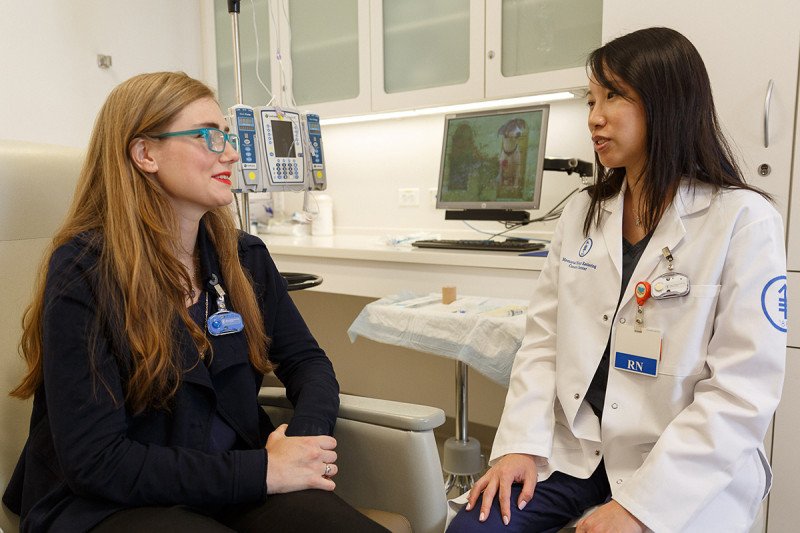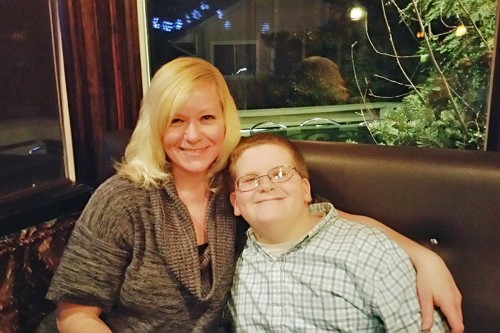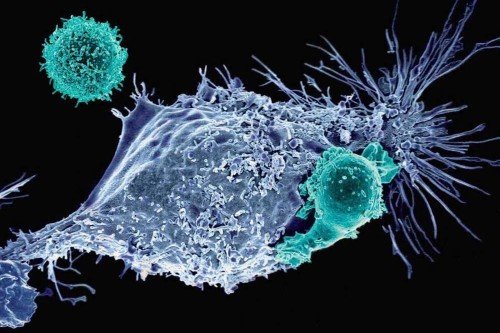
Our patients receive comprehensive care from our entire medical team, including MSK’s outstanding nurses.
Many treatment options are now available for non-Hodgkin lymphoma. These include traditional chemotherapy, targeted drugs, and novel therapies that are available only through clinical trials.
At Memorial Sloan Kettering Cancer Center (MSK), we design a treatment strategy specifically tailored for you, based on (but not limited to):
- the type of non-Hodgkin lymphoma you have and whether it is aggressive (fast growing) or indolent (slow growing)
- the stage or extent of your disease
- the molecular and genetic features of your disease
- your overall health status, including your age, physical fitness, and other medical conditions
- your personal goals and preferences
Active Surveillance for Indolent (Slow-Growing) Lymphoma
Slow-growing lymphoma is also called indolent lymphoma. If you have this type of lymphoma and aren’t experiencing any symptoms, your doctor may recommend an approach called active surveillance. This means your doctor will watch for any signs of change in your regular physical exams, blood tests, and imaging studies. Many of the patients in our active surveillance program don’t require any type of treatment for years.
If your lymphoma becomes more active and needs to be treated, we’ll come up with a new treatment plan together.
Chemotherapy for Non-Hodgkin Lymphoma
Chemotherapy has been an effective approach for treating and potentially curing patients with non-Hodgkin lymphoma for many decades. Chemotherapy kills the rapidly dividing cancer cells throughout the body.
For people with aggressive B cell non-Hodgkin lymphoma, we commonly recommend a chemotherapy treatment called R-CHOP. It is named after the medicines included in the mixture:
- rituximab (Rituxan®), a monoclonal antibody that helps your immune system destroy the cancer cells and makes the chemotherapy more powerful
- cyclophosphamide (Cytoxan® and Neosar®)
- doxorubicin hydrochloride (Adriamycin® and Rubex®)
- vincristine sulfate (Oncovin® and Vincasar Pfs®)
- prednisone (Deltasone®, Liquid Pred®, Meticorten®, and Orasone®)
You may receive R-CHOP alone or along other treatments, such as surgery and radiation therapy.
Targeted Therapies for Non-Hodgkin Lymphoma
We’re developing new treatment strategies based on our understanding of why and how lymphoma develops and grows. Biologically targeted drugs can turn off the molecular pathways that drive your lymphoma to grow and divide. These new treatments can often be more effective and less toxic than traditional chemotherapy. At MSK, we have many clinical trials with biologically targeted drugs to improve treatment options for people with non-Hodgkin lymphoma.
Immunotherapy for Non-Hodgkin Lymphoma
MSK is an international leader in the development of immunotherapy for the treatment of cancer. This innovative approach works by strengthening the immune system’s ability to fight disease. Examples of novel immunotherapies that are being used to treat lymphoma include chimeric antigen receptor (CAR) T cell therapy, bispecific T cell engager (BiTE®) antibody therapy, and immune checkpoint inhibitors, such as nivolumab (Opdivo®).
CAR T Cell Therapy
Video: CAR T Cell Therapy: What It Is and How It Works
CAR T cell therapy is an exciting and powerful treatment now available for some patients with diffuse large B-cell lymphoma (DLBCL). When a person with DLBCL relapses after prior therapy or stops responding to treatment, a stem cell transplant used to be the only option. CAR T cell therapy is another potentially lifesaving option that could now be offered if you are not a candidate for stem cell transplantation, or if your disease relapses after a stem cell transplant.
CAR T cells are sometimes called “living drugs.” That’s because the treatment uses your own cells to treat your cancer. With CAR T therapy, your immune cells are filtered from your blood. Then they are sent to a lab where they are armed with new proteins that teach them to recognize cancer. Afterward, your newly supercharged cells are multiplied and infused back into your blood, where they can seek out and destroy your cancer.
Memorial Sloan Kettering is one of only a select few institutions equipped to administer CAR T cell therapy safely. Our doctors and nurses have unparalleled expertise in caring for patients who are receiving this treatment. Our clinical staff — including our bone marrow transplant service — has vast experience in minimizing risks and managing side effects. Memorial Sloan Kettering scientists played a pioneering role in developing the science and technology of CAR T cell therapy, and they are working hard to improve and expand it.
Call 1-888-MSK-CART to learn more about treatment of certain forms of lymphoma.
Radiation Therapy for Non-Hodgkin Lymphoma
Many types of lymphoma are highly sensitive to radiation therapy. These varieties can be treated with much lower doses of radiation on smaller areas of the body than in the past.
At MSK, our radiation oncologists apply the most sophisticated and modern technology to give focused radiation that reduces long-term side effects as well as the risk of damage to healthy cells. Intensity-modulated radiation therapy (IMRT), which was developed at MSK, uses advanced computer programs to calculate and deliver radiation directly to cancer cells from different angles. A PET-CT simulator helps us plan the treatment. This image gives us real-time information about how active the disease is and where it is in the body. It allows us to determine the radiation treatment position that will be the most accurate and safe. In addition, we are one of the few centers in the country that offer Total Skin Electron Beam radiation, a very effective treatment for patients with lymphoma in their skin.
Stem Cell Transplantation for Non-Hodgkin Lymphoma
In a stem cell transplant — also called a bone marrow transplant — a patient’s blood-forming stem cells are replaced by adding new ones into the bloodstream. Often the goal of a stem cell transplant is either to cure lymphoma that has returned after initial therapy or to allow a patient to live a long time without therapy.
Because of the expertise of our transplant team, patients often have excellent results with both autologous (using the patient’s own cells) and allogeneic (cells from a donor) stem cell transplantation.
At MSK, you will be treated by a team of doctors, including medical oncologists, radiation oncologists, radiologists, and more.
See a full list of our lymphoma doctors.










